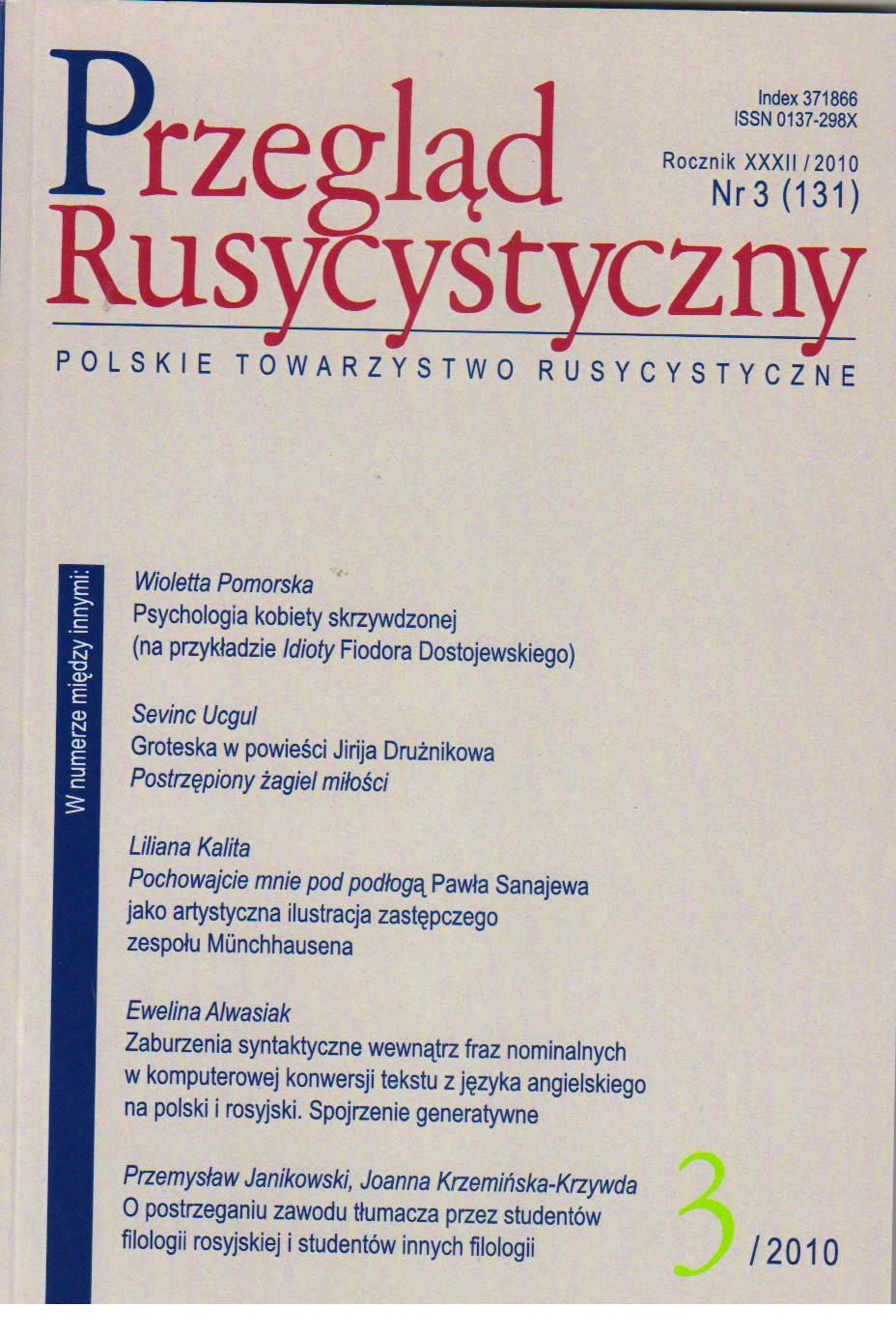Rosyjskie modele zdań ze znaczeniem żalu w konfrontacji z językiem polskim
Models of Russian sentences with the meaning of mercy — in comparison with their Polish counterparts
Author(s): Zofia CzapigaSubject(s): Language studies, Language and Literature Studies, Theoretical Linguistics, Syntax, Comparative Linguistics, Western Slavic Languages, Eastern Slavic Languages
Published by: Polskie Towarzystwo Rusycytyczne
Keywords: Russian syntax; models of Russian sentences;contrastive grammar; Polish syntax; structural and semantic alternations
Summary/Abstract: The article discusses Russian sentences of the adverbial-predicative type with the meaning of mercy, with Dative of the subject, in comparison with Polish language. The main model with predicates жалко, жаль, обидно, неприятнo (N (Pron)d cop Adv) undergoes certain structural and semantic alterations: 1. N (Pron)d cop Adv Na/g; 2. (cop) Adv; 3. N (Pron)d cop Adv Inf; 4. N (Pron)a cop Adv; 5. Nn Adv Vf; 6. Adv, что... In most cases Polish material preserves this type of structures, but other models can appear as well. In such cases usually it is the type of subject that differs, not its semantic features. Russian predicates with the meaning of mercy have in Polish language, apart from lexical, also textual equivalents, e.g. another adverb (usually a synonym), adjective, noun or verb.
Journal: Przegląd Rusycystyczny
- Issue Year: 2010
- Issue No: 131
- Page Range: 45-58
- Page Count: 14
- Language: Polish

